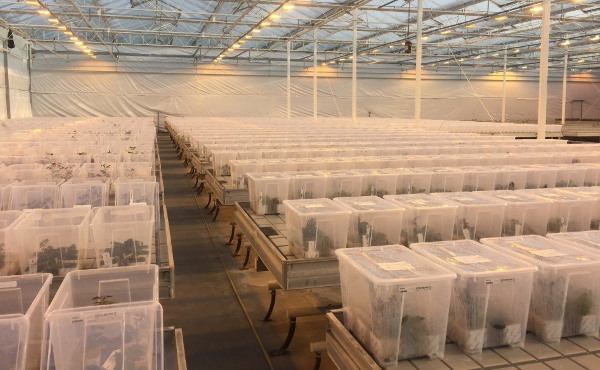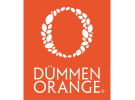Start clean, stay clean. This is in a nutshell the strengthened Greencare policy from Dümmen Orange. The necessity is given by the increasing disease pressure and globalisation. Frank Wagenaar: “You take your responsibility, for the product group rose, for the Netherlands ltd. Everything for clean and healthy rose cuttings.”
“Has there been any direct reason for our Greencare policy? We can’t avoid the summer of 2016.” Frank Wagenaar, Head of Production the Netherlands, recalls the Ralstonia outbreak on the rose location. “We had just started the take-over procedure. This location of Olij Rozen would be incorporated into Dümmen Orange. And then this happens… But it has also been the moment to organise the work procedures in a way that there would be no chance on a next outbreak.” They took rigorous measures.

Ten weeks
To make sure that ‘what is clean remains clean’ Wagenaar and his team mapped how possible bacteria would spread: via the planting material itself, via water, clothing and working tools. Next they took far reaching measures to control the phytosanitary risks from breeding to production. Wagenaar: “As a breeder and producer you start of course with your planting material. We work as much as possible in a closed system, with as few plants from outside as possible. The planting material that comes from outside goes for ten weeks in quarantine. They’re must be no contact under any circumstances with plants already present. Only when our tests prove three times negative for diseases and pests we allow these plants in our rose pool. Yes, the cycle takes two and a half months longer. But times have been changed influenced by globalisation and disease pressure. You take your responsibility.”
Four tests instead of two
Wagenaar: “The water is checked and double checked too. From the environmental point of view we reuse as much water as possible. This means that we have to disinfect very carefully. We do this among others with UV lamps. But this is not all. In order to participate in the Naktuinbouw rose pool, we are obliged to let Naktuinbouw check our water twice a year. We have this done, voluntarily, four times a year. We trust our policy and know that any possible anomalies will be detected in the water samples immediately. If anything is noted we want to know as soon as possible.”
No more own scissors
The third source, clothing and tools, has the largest influence on employees. Every division - breeding, propagation, production and showcase - has now its own working clothing in distinguishing colours. The clothing is being collected twice a week by a laundry service. Formerly everybody had their own scissors, now every path has a pair of scissors that only should be used there. Joop Mohlmann, Location Manager (de Kwakel): “This means quite something! A: it takes more time and B: nobody has their own scissors or gloves. And we used to think it was important that you had your own scissors.” Employees of breeding in blue pullovers can no longer enter the ‘black’ propagation greenhouse. In some cases this means a detour. Mohlmann: “You have to get used to it, but we note a lot of understanding. Everybody understands that this is the new reality. And everybody thinks it's horrible if anything would go wrong. Seeing that the flowers you have grown with so much care are being destroyed……. Ugh.”
Large general interest
In the fall of 2017 the Netherlands Plant Protection Service declared the location clean. Wagenaar: “But we took consciously more time to standardize the process. We already had faith in the cuttings we delivered. We literally tested each and every plant. But now, three years after the take-over of this location, we also trust the process. This has a large general interest. Wagenaar underlines that they do it for “the clients, the product group rose, the Netherlands ltd, and yes, the world…. Our cuttings are exported over the whole world. With confidence. And: “In vegetables and fruits this strict policy has been common for years. In that case it concerns food. For roses this is still unique. We believe that this will be the standard.
Greencare in a nutshell
Greencare is the phytosanitary policy of Dümmen Orange to deliver healthy and clean starting material to growers worldwide. It guides to prevent, control and minimize phytosanitary risks from breeding to production with the aid of:
- far reaching hygiene measures, such as separate working clothes and tools per phytosanitary location
- checks and double checks, with periodic lab tests and regulated quarantine locations
- close co-operation, with the research department and world-wide partners in research, knowledge exchange and clear communication in case of crisis
For more information Dümmen Orange
Dümmen Orange
Frank Wagenaar, Head of Production the Netherlands
Hoofdweg 119
1433 JX Kudelstaart
The Netherlands
F.Wagenaar@DummenOrange.com
www.dummenorange.com
